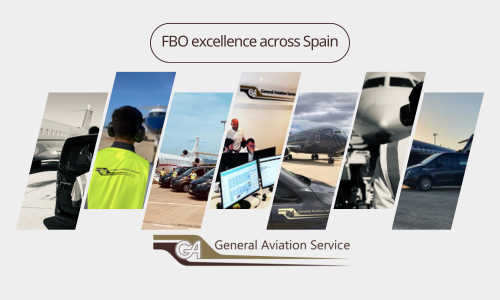Britain’s business aviation industry is bracing for negative fallout from last week’s so-called Brexit vote to leave the European Union (EU). With the exact timeline and terms for the country’s exit still highly uncertain, the first concern among aircraft charter operators seemed to be an immediate decline in demand caused mainly by extreme instability in the financial markets, which have always been a significant part of their customer base.
The anticipated dip in demand is a Europe-wide concern, but beyond that UK charter operators are fearful of what could come later if they lose their cabotage rights to operate between cities within the EU. “The immediate problem is the terrible turmoil on the [financial] markets,” commented George Galanopoulos, managing director of London Executive Aviation. “People were just not prepared for this and what might come next with cabotage rights.”
UK-based charter operators are now having to contemplate whether it may be necessary for them to establish new subsidiary operations in other EU states to hold on to an EU air operators certificate. This is tactic already employed by Swiss-based companies such as Comlux and VistaJet, which base operations in Malta.
There is further uncertainty over the extent to which the regulatory environment might change. While it seems highly likely that the UK would remain a member state of the European Aviation Safety Agency (EASA), along with other existing non-EU countries Switzerland, Norway, Iceland and Liechtenstein, the UK Civil Aviation Authority (CAA) might seek to assert some autonomy that could upset the notion of a level playing field. Also, there is no precedent for an EU state leaving the union and then seeking to remain in EU-backed institutions likeEASA and Eurocontrol, so the terms under which this might happen seem very unclear.
“Business aviation is very much linked to the economic well-being of the countries and regions in which we operate,” said Patrick Hansen, CEO of the Luxaviation Group, which includes London Executive Aviation, ExecuJet and several other leading European business aviation service companies. “Any uncertainty in the economy or an economic downturn is likely to affect our revenues so, in general, the Luxaviation Group, just like most other business, would have been better off without the uncertainty and the possible resulting economic downturn.”
Luxaviation, which has operations in several EU states, as well as Switzerland, believes that it is well placed to weather the possible storm. However, Hansen warned of several additional complications from the impending UKexit from the EU: “The main concern as a result of Brexit for UK business aviation might be VAT [tax] regulations and ownership and financing structures for UK-registered and financed aircraft.”
Compounding the uncertainty that now envelops the European business aviation market is the complete lack of clarity over what comes next. The UK now has a lame duck prime minister in David Cameron, who announced his intention to resign in October after the ruling Conservative Party has elected a new leader. But none of the candidates vying to replace Cameron has given a clear explanation as to how they will implement what remains a non-binding referendum vote.
Other EU leaders are pressuring the UK to accelerate its departure under the Article 50 rules that would see it exit the union exactly two years later, with or without an amicable agreement that might allow the UK to retain market access privileges within the EU’s so-called single market. London Executive’s George Galanopoulos is among those hoping that politicians will follow a more cautious course that might see it take as long as seven years to reach a more gradual and less disruptive exit plan.
Some industry executives, speaking to AIN on condition of anonymity, expressed hope that the UK will be able to negotiate continued cabotage rights after it’s complete exit from the EU. However, EU leaders have yet to indicate any willingness to allow the UK to enjoy the benefits of the single market without shouldering the obligations of EU membership.
“A significant question mark remains and that is the [UK] government’s desire to negotiate a bilateral agreement to accept EASA legislation as a separate requirement [beyond CAA rules], where perhaps other legislation controlled by Brussels would be rejected,” commented Marc Bailey, CEO of the British Business and General Aviation Association. “That is of course assuming that other [EU] member states would wish to see the UKparticipating in the EASA requirements as they do today.”
Mindful of the collapse in the value of the British Pound on international currency markets, Bailey warned that key costs such as fuel could increase for UK operators by as much as 20 percent. Nonetheless, it is notable that the BBGA chose not to take an official position on a vote that will clearly define Britain’s future in 21st century Europe and which has left many of its members in a state of extreme consternation.




Thales and Sopra Steria announce a new multiyear partnership, which will lead the digital transformation of the Air Traffic Management industry in Europe. The two players will combine their...
ZeroAvia agreed a deal for the first sale of its 600kW electric propulsion system to Jetcruzer International for electric flight testing to hone the design of its Jetcruzer 500E. D...
2024 was a very successful year for Pilatus. Despite ongoing challenges, we were able to hand over 153 aircraft to our customers thanks to continued high demand. With total sales of 1.633 billion Swis...
Archer Aviation received FAA certification to launch its pilot training academy. This certification, referred to as Part 141, is granted to a flight school by the FAA, signifying that it is a for...
